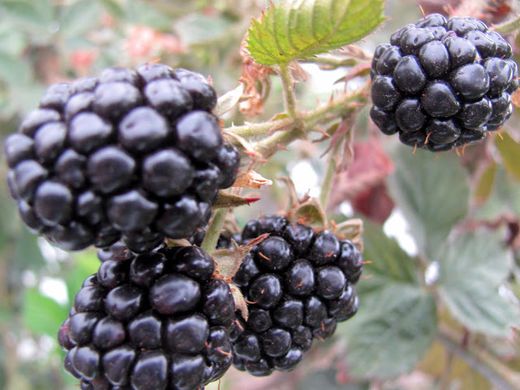Mexico’s berry exports reach US$2.1 billion
Berries occupy third place in the agricultural exports of Mexico, only after avocado and beer, generating US$2.1 billion and 350,000 direct jobs. The sector is working on a collective brand, Berries de México. (Source: SAGARPA-SIAP Atlas Agroalimentario 2017)
Aneberries members represent 90% of Mexico’s berry exports. The association was founded nine years ago to ensure safety and phytosanitation standards and increase the country’s presence in international markets. Juan José Flores Garcia, CEO of Aneberries, said, “We seek to bring the Mexican industry together in an organised and specialised manner, protecting the interests of the union and seeking to reach its maximum potential in a profitable and sustainable way. Today we have 29 partner companies and we invite producers and exporters who are not members to join us to continue positioning and increasing the consumption of berries in Mexico. Within our areas of work, we are focused on the emerging markets of Southeast Asia, the Arabian Peninsula and the Middle East, and on achieving self-regulation, encouraging and strengthening social responsibility, and converting blackberry producing areas affected by phytosanitary problems.” Mexican berries are produced and exported almost throughout the whole year, with August and September being the months of low volumes. Although there was a slight decrease in the 2018 season compared to the previous one (as of October 2018 data) (source: SIAVI), Mexico’s production growth is dramatic. The main advantage it has over its competitors is that it produces the four species throughout the year, with raspberries and blackberries having the greatest volume share, followed by strawberries and blueberries, with the latter benefitting most from new technology and with very good profitability. Today, Mexico exports to 35 countries on four continents. Around 97% of exports are concentrated in the US and Canada, while 1.4% go to Europe and 1% to Asia. General manager, Juan José Flores García, sees Japan as a very good destination for blueberries: “Aneberries seeks to expand exports to Asian markets, where the reduction in tariffs will be key. That is one of the main challenges. In addition, we seek to be an example in terms of responsibility, sustainability and safety, which is why certification is promoted with different labels, such as GLOBALG.A.P., PRIMUS, SMETA, FAIR TRADE, USDA Organic, JAS, SRRC (Risk Reduction System) of Contaminants), among others.”
Since 2011, Aneberries has organised an annual international congress, recognised sector as the sector’s main berry event. It is aimed at producers, exporters and suppliers, where you can access conferences, work tables and exhibition stands. The 2018 edition saw an attendance of 1,650 participants, and Flores Garcia said that figure is expected to increase by over 25% by 2019.



